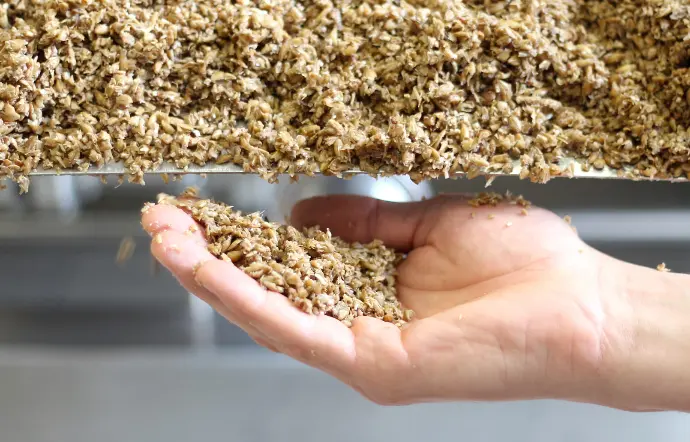Why research?
A commitment to the future
By collaborating with the research laboratories of ULB and stakeholders in the brewing sector, we aim to make the university brewery a driver of sustainable innovation. This project is not limited to meeting the needs of the brewery of ULB, but seeks to transform the brewing sector as a whole for a more responsible and environmentally friendly future.
The challenges of sustainability in the brewing sector
The ecological transition has become an essential priority across all sectors, including brewing. As an energy and raw material-intensive sector, brewing production also generates a significant amount of waste that is often underutilised or poorly managed..
The current challenges

Energy consumption and raw materials
The efficiency of equipment and the control of brewing processes play a crucial role in reducing the ecological footprint. However, the duration and management of the various production stages vary from one brewer to another and are often defined arbitrarily, leading to a waste of resources.
A better control during the production process would not only minimise the use of energy resources and raw materials, but also ensure a consistent reproducibility of beer profiles over time, a particularly important challenge for smaller productions.

Waste valorisation
Brewing waste, such as spent grains, hops, yeast, or CO₂, represents a major challenge. These by-products are often released into the environment or handed over to third parties, often for free but sometimes even at a cost to the breweries, without being truly valorised..
By adopting upcycling strategies, breweries can transform these waste products into economic and ecological opportunities. This would not only allow them to reduce their environmental impact but also to increase their revenues through the sale of processed by-products or through their reuse as raw materials, while strengthening their sustainable business model.

Accessibility of existing solutions
Although sustainable technologies exist on the market, they are primarily designed for large-scale industrial production. This makes them unsuitable and inaccessible for small and medium-sized breweries, which are nonetheless an important part of Belgium's brewing heritage..
Thanks to the research projects conducted within the university brewery, our aim is to develop cost-effective, accessible solutions that are tailored to the realities of small and medium-sized breweries, in order to support them in their sustainable transition..
Our ambition with Beer in Mind
With the university brewery project, we aim to address these challenges by offering solutions tailored to all production sizes. Our objectives are as follows:
- Develop accessible eco-friendly solutions:
Design tools and methods tailored for small and medium breweries to optimise production processes and repurpose waste. - Test and validate these solutions:
Use the university brewery as a laboratory to experiment, adjust, and validate these approaches in a realistic environment. - Collaborate with other breweries:
Work hand in hand with other breweries to listen to their needs, co-develop solutions, and create synergies that will benefit everyone. - Preserving a Belgian heritage:
By supporting breweries in their ecological transition, we contribute to defending a unique craftsmanship and heritage in the world, while strengthening their resilience in the face of current challenges.
